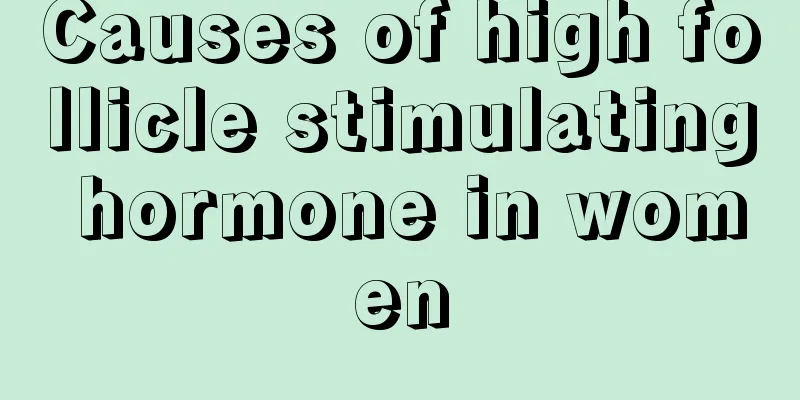What causes bleeding in stool 30 days after delivery?

|
If a woman has bleeding in her stool after childbirth, she is likely suffering from hemorrhoids. This disease can be caused by many reasons. For example, some female friends lie in bed every day after childbirth and have little time for activity. This causes compression of the veins and the formation of hemorrhoidal venous clusters. In addition, some women may drink very little water after giving birth and have constipation problems. Long-term constipation can easily cause hemorrhoids. During pregnancy or postpartum confinement, the amount of progesterone in the body increases, the peristalsis of the large intestine slows down, and constipation is very easy to occur. Once constipation occurs, it is easy to induce hemorrhoids. During the growth process, if the delivery time is too long through normal delivery, hemorrhoids will be aggravated. During pregnancy, the pelvic tissue in a woman's body becomes loose. During normal delivery, excessive force is applied and the abdominal cavity moves for a long time, which can easily lead to the formation of thrombotic arteries. Hard lumps will form on the skin around the anus, causing pain and forming hemorrhoids. Some pregnant women who undergo caesarean section are no exception and will also develop hemorrhoids. The main manifestation is blood in the stool, which may be painless, intermittent, with fresh blood after defecation, blood dripping during defecation, or blood on toilet paper, and may be aggravated by constipation, drinking, or eating irritating foods. Simple internal hemorrhoids are painless but only cause a feeling of heaviness and distension. They may bleed and develop into prolapse. Pain only occurs when combined with thrombosis, incarceration, and infection. Internal hemorrhoids are divided into 4 degrees. Bleeding during defecation, the bleeding stops on its own after defecation, the hemorrhoids do not protrude from the anus; there is often blood in the stool; the hemorrhoids protrude from the anus during defecation, and return to the anus automatically after defecation; ③ Grade III hemorrhoids require manual assistance to return after prolapse. Women should actively prevent possible postpartum hemorrhoids after giving birth. In fact, the prevention method is very simple, just drink more water every day and do appropriate physical activities. In addition, eat easily digestible food after giving birth to avoid constipation. You should also pay attention to cleanliness after giving birth, especially keep the area around the anus clean and develop good bowel habits. |
<<: What is the cause of bleeding in stool 25 days after delivery?
>>: What to do if your nipple bleeds
Recommend
Is it normal to have your period 5 days early?
The time when many new mothers' menstruation ...
Causes of abdominal pain after IUD insertion
IUD insertion is a common contraceptive measure u...
How to check in luggage with an electronic boarding pass? Can I use an electronic boarding pass without picking up the ticket?
The electronic boarding pass is used to identify ...
What's the best thing to eat when my aunt comes?
Many people know that women’s menstrual period ca...
Are Verbena cherry cold-resistant? How to maintain it in winter to ensure it survives the winter safely?
Verbena is a common flower plant in life. It is l...
Is it normal for babies to have white spots like fat particles on their faces? What causes white spots on babies' faces?
We all know that the skin of a newborn baby is ve...
What is the name of the airport in Sabah, Malaysia? How is the tourism in Sabah, Malaysia?
Sabah is abbreviated as Shazhou, formerly known a...
Will sleeping on the left side put pressure on the fetus?
Sleeping is an essential physiological activity f...
What should patients with depression who are taking medication do if they want to have a baby?
This is the 4583rd article of Da Yi Xiao Hu One d...
National Science Popularization Day 2021 | Boost your confidence! More than 80% of lymphomas can be effectively controlled
September 15 World Lymphoma Awareness Day From CC...
Why does a woman's lower abdomen beat?
Many women are very sensitive to some symptoms in...
The harm of onychomycosis to women
Onychomycosis is medically known as a type of tin...
What is the treatment for pelvic cysts?
Recently, more and more women have developed ovar...
I can't control my emotions and keep crying when I'm pregnant
After women become pregnant, in addition to physi...
Is it okay to have sex half a month after a miscarriage?
The pace of social development is fast and the pr...









